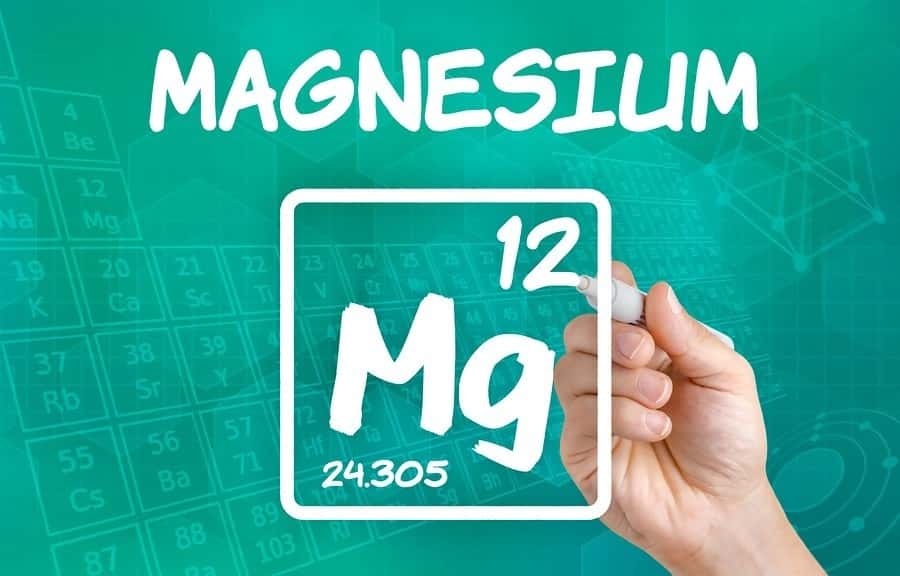Best Magnesium For Restless Legs
Restless legs syndrome (aka Willis-Ekbom disease), is a common condition of the nervous system that can cause an irresistible urge to move the legs.
As the cause is often unknown, it can be difficult to know how to treat such a condition.
However, magnesium is often suggested as a way to stop restless legs. But does it actually work? And which magnesium is best?
Read on to find out more about this subject.
Author: Josh Matthews (BSc MS)
What Are The Symptoms of Restless Legs Syndrome?
The main symptom of restless legs syndrome are as follows:
An overwhelming urge to move your legs.
An unpleasant crawling/creeping/cramping sensation in the thighs, calves or feet. Sometimes even in the arms.
Restless legs syndrome may also be associated with involuntary jerking movements in the legs and arms (known as periodic limb movements (PLM)).
These symptoms may occur occasionally, or daily. Sometimes symptoms can get worse at night.
The symptoms can vary from mild to severe, and symptoms may often increase when you’re inactive, like when you’re sitting or lying down.
What Causes Restless Legs Syndrome?
Often, there is no obvious cause of restless legs syndrome. This is known as idiopathic, or primary restless legs syndrome. This type can run in families.
Some neurologists believe the symptoms of restless legs syndrome may be the result of how the body handles the chemical dopamine.
Dopamine is involved in the control of muscle movement, and may be responsible for the involuntary leg movements associated with restless legs syndrome.
Restless legs syndrome in some cases can be caused by an underlying health condition, for example iron deficiency anaemia or kidney failure. This is known as secondary restless legs syndrome.

There’s also a link between restless legs syndrome and pregnancy. Approximately 1 in 5 pregnant women will experience symptoms in the last 3 months of their pregnancy. However it is not clear exactly why this is.
In these cases, restless legs syndrome typically improves, and usually goes away, after the woman has given birth.
There is also evidence that low magnesium levels in the body may cause restless legs.
This is because magnesium acts as a calcium blocker, and in the absence of magnesium, calcium levels in the body may rise.
High calcium levels have been linked with involuntary movements and cramp.
Can Magnesium Help Restless Legs Syndrome?
Overall, current research suggests that magnesium is beneficial in helping reduce and prevent Restless Legs Syndrome.
Research suggests that some cases of restless leg syndrome could be caused by a magnesium deficiency.
Therefore magnesium supplements may help reduce the symptoms of Restless Legs Syndrome.

Researchers believe that magnesium makes it easier for muscles to relax.
If magnesium levels in the body are low, calcium does not get blocked, and nerves may become overactive. This can trigger muscle contractions.
Another study found that magnesium had the potential to provide relief for patients with mild to moderate Restless Legs Syndrome.
What Is The Best Magnesium For Restless Legs?
There are many types of magnesium available today, so it can be confusing to know which is the best magnesium for restless legs syndrome.
Now we will look at the types which would appear more appropriate for use with restless legs.
Magnesium Glycinate/Biglycinate
This magnesium is combined with the amino acid glycine.
Glycinate is absorbed well by the body, and generally will not cause digestive distress.
Glycine is also often used as a supplement in itself to improve sleep, making this type of magnesium ideal if you have restless legs at night.
Magnesium Glycinate comes as capsules and in powder form, with powder form being slightly better for absorption.
This magnesium is also beneficial to your psychological health, and has a calming affect which may help anxiety, and improve sleep.
Overall, a highly absorbable form of magnesium, with high bioavailability.
Pregnamag, a magnesium supplement, contains Magnesium Glycinate as its main ingredient. Further details on this product can be found by clicking here.
Magnesium Chloride
This magnesium has a good absorption rate, and is great at detoxifying at a cellular level.
Magnesium Chloride is typically used in flake, or spray form.
This makes this type of magnesium a popular choice for people who want to soak in a bath to relieve any aches or cramps. Also for anyone wanting to spray magnesium on a troublesome area of the body.
This type of magnesium is ideal for those with sensitive guts, as when used topically, it bypasses the gut completely.
Try spraying some magnesium, such as Ancient Minerals Magnesium Spray, on your legs before bed.
How Much Magnesium To Take For Restless Legs?
There is no set amount of magnesium to take to improve restless legs.
However, as restless leg syndrome may be a result of a magnesium deficiency in the body, aiming for the recommended daily amount (RDA) of magnesium is a good starting point.
The Recommended Dietary Allowance (RDA) for magnesium is as follows:
Adults 19-51+ years – 400-420 mg daily for men and 310-320 mg for women.
Pregnancy requires about 350-360 mg daily and lactation, 310-320 mg.
The Tolerable Upper Intake Level (UL) is the maximum daily intake unlikely to cause harmful effects on health. The UL for magnesium is 350 milligrams (from supplements only).
Extra magnesium from food is safe because the kidneys are able to eliminate excess amounts through urine.
When To Take Magnesium For Restless Legs
Magnesium for restless legs can be taken any time of day, as long as you are able to take it consistently.
Some people prefer to take magnesium first thing in the morning.
Others prefer to take it before meals, whereas some will prefer to wait until before bed time.
It really is whatever fits with you and your routine.
Conclusion
Restless Legs Syndrome can be an inconvenient, and uncomfortable condition to experience.
Fortunately, Magnesium offers hope to those who experience this condition.
Magnesium supplementation for restless legs is easy to achieve, and is also backed up by research.
Hopefully this article has helped you decide what is the best magnesium to take for restless leg syndrome.
Find more article like this on curemycramp.com.
Disclaimer: All information on this site is for information only, and not intended to replace the advice of a qualified medical professional. curemycramp.com and any writers associated with this website accept no responsibility for circumstances arising from the use of information on this site, without consulting a registered health professional first.

